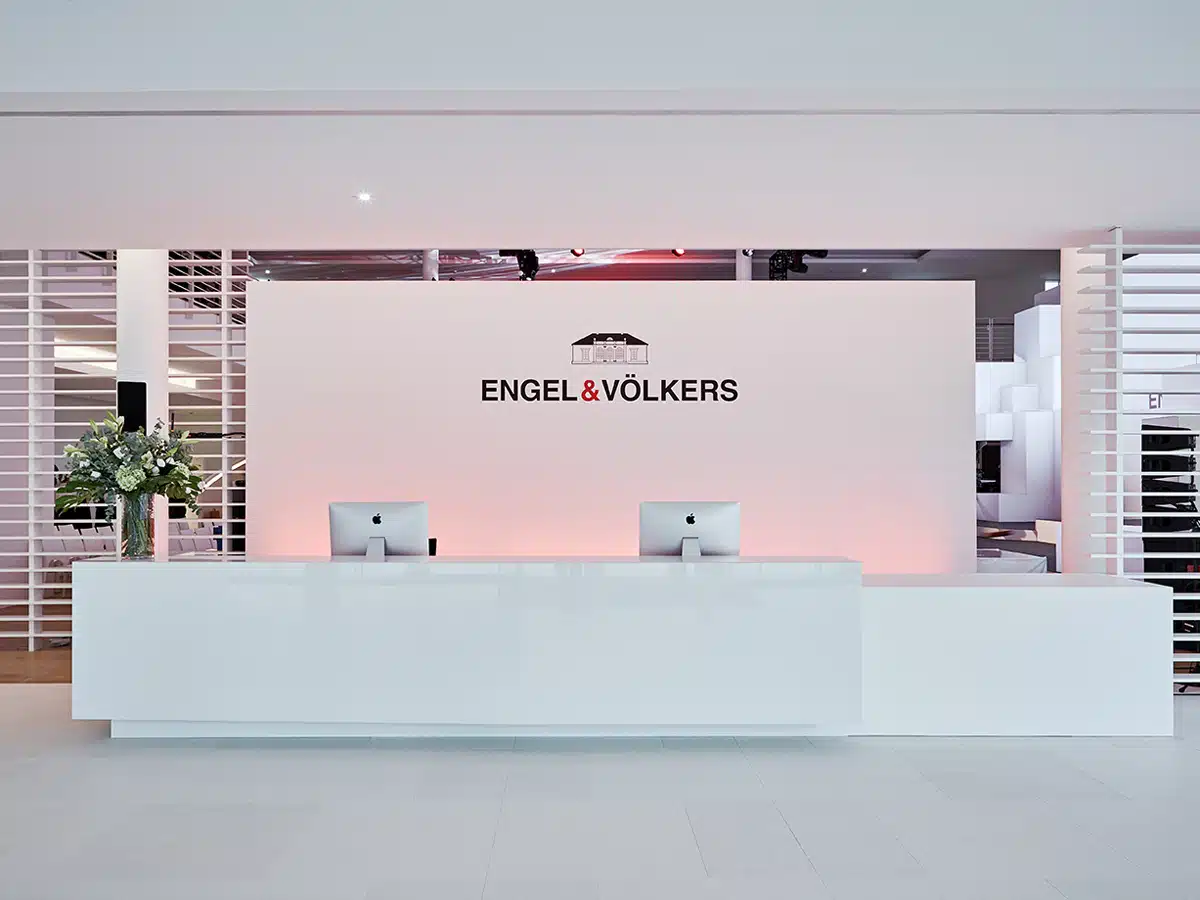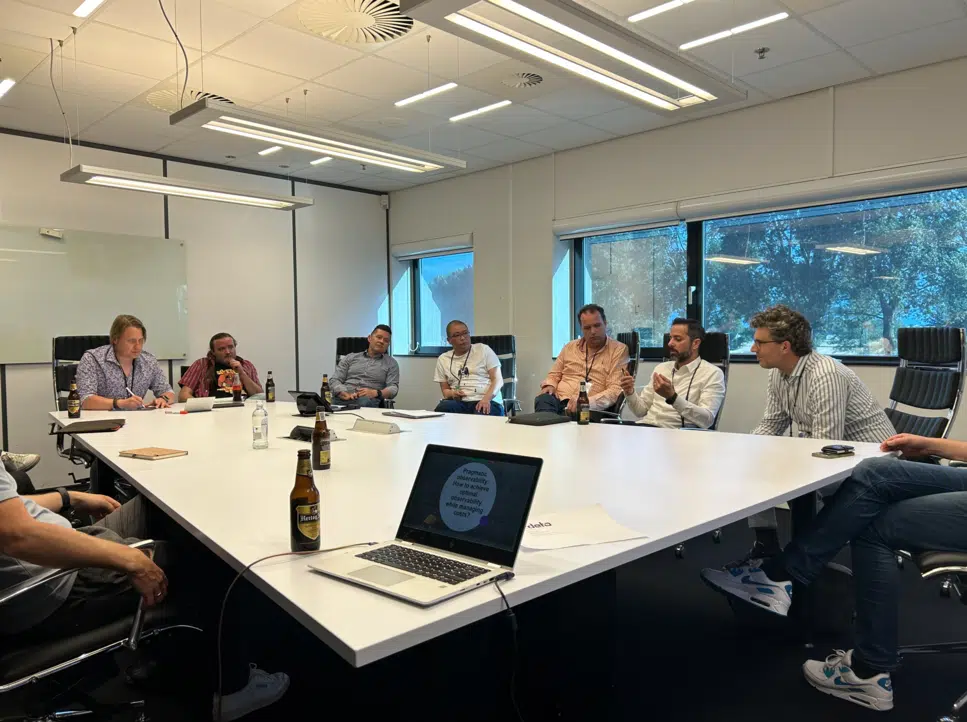The third in our series of DevOps Leaders Roundtable events was a little different, as a result of the global pandemic we gathered with some of the best minds in DevOps in a virtual setting. However, there was a lot to discuss and it proved to be another incredibly successful evening.
The aim of this event was to provide a platform for leaders in DevOps to contribute their experiences of the changes the pandemic has led to within their organisations and functions, and what they’ve learned.
Below Co-Host, Grant Smith, Consultant at Zoopla, gives a rundown on the evening.
Opening Remarks
When preparing for this evening’s meeting Adam and I were thinking about what this forum could offer to our friends in industry. We had both seen many articles published on social media about working from home from teams that were either already remote and from people who have been working from home for some time.
We’ve also seen the news from Twitter and Google that suggests that after the pandemic those organisations are going to support people who want to work from home in doing so.
Zoopla had to make some bold strategic decisions about its business when the government shut down the housing market. Fortunately for me and my teams we had, some months prior, embarked on a technology renovation project and we were instructed to continue with that work. Some of our colleagues were furloughed but our teams continued almost as we were.
One thing we were surprised to observe was that our productivity was almost entirely unaffected by working from home. Now, we had scoped the programme and been working on it for a few months before we started working from home so we were well past the workshop phase but the distributed nature of our technology, a very slick VPN solution and some great adaptivity by our people meant that we have had a very productive few months since we started working from home.
That led Adam and I to conclude that it would be useful to highlight the strengths and the weaknesses of our technology decisions, our approaches and how we have organised our selves.
That leads me to our first topic for discussion:
Affects on your business and how your DevOps/SRE function helped
How has the pandemic affected your technology organisation and your DevOps/SRE functions?
How has your DevOps/SRE functions (with their [usually] cloud centric and decentralised approaches) have been (or not) taken up and/or helped the business?
DevOps and Cloud transformations can be described by a curve. The curve has a definite peak and once past that peak all the investment seems to pay off. Organisations that had passed that peak before the pandemic have found it easier to adapt to the lockdown than those who are yet to reach the peak.
The group, like most people, have found working from home difficult, although we all count our blessings that we have all kept working. When considering whether the lockdown will have a permanent impact on work, whether firms would consider adopting working from home as normal one member of the group expressed concern that it would pose a risk to increasing the diversity of our teams if candidates were suddenly required to have good computers, home offices, and proper equipment.
When it was suggested that most of us had experienced no drop in productivity there was a suggestion that it might be due to fear of losing jobs. This is a concern and it’s certainly true that many of us are getting worn out attending calls all day and trying to get work done at the same time.
Affect on Consultancies
Our members from consultancies have had to be flexible. Their clients have suddenly needed to deploy virtual desktop environments for their workers and the DevOps consultancies had to flex to support that deployment. New projects are being put off. Some organisations aren’t confident that they can run an inception remotely.
While some of us are working in organisations actively considering how the world of work might be different after the lockdown many organisations are still looking to recruit locally. Overall the group are skeptical that the pandemic will lead to changes in how we work longer term. We feel that until organisational management matures we will not see a significant change in the work environment. Google and Twitter’s announcement notwithstanding.
The groups contacts in AWS and Azure lead us to believe that the pandemic will lead to more data centre exits as those organisations with inflexible and centralised infrastructure are seeing the flexibility that organisations who have already adopted cloud computing have.
While engineering work has continued apace even though it has moved to entirely remote teams the Client/Consultancy relationships are more difficult remotely. These relationships rely on in-person interactions as non-verbal communication can help overcome cultural differences.
Maintaining Innovation
This pandemic has led to innovation work on trying to improve how these remote teams engage with projects. Techniques in the Systems Thinking group is helping some teams retain focus and improve their sense of ownership of the product end-to-end.
One of our members is managing a large on-premise Kubernetes patching project and is finding Strategic options development and analysis is encouraging his team to think through various options and paths and form perspectives on the differences between them and is creating better approaches as a result.
Another example on the same project is using Soft systems methodology to create a failover mechanism from active to passive data centre system for a Kubernetes cluster with Cassandra using GSLB for traffic management. They are taking a standard operating procedure approach but mapping out what the SOP should look like as a process-map and then build the backlog from that perspective!.
Not only are these approaches creating great solutions but they are creating a strong sense of ownership of the problem because the team have been a part of defining the strategy from inception to delivery.
Flexible Working was a Training Exercise
Flexible working schedules already in place which have been something of a training exercise for full time remote working. Shipping equipment and federating machines has required some creative approaches. Not everyone has access to a good working environment at home. This has created some challenges. To get around this some organisations have created expenses processes that allowed employees to buy what they needed rather than having the company ship furniture and kit.
In one organisation the pandemic accelerated an asynchronous approach to working that encouraged engineers to pick up unfinished work as opposed to relying on handover meetings to coordinate work.
One of our members works in a modern Fin-tech organisation where working from was managed easily with 95% of the workforce working from home in the first week! This was possible because the organisation was already in the cloud and had flexible working schedules. Adopting new tools was also easy as the organisation already had light-weight governance features.
Where they have struggled was where they relied on software platforms from or dependent on 3rd parties. Their Deployment Pipeline was less mature and in-house engineering was limited as it relied on 3rd parties. Their call-centre vendor couldn’t cope with the volumes when the govt announced the payment holidays. This forced development and the SRE team needed to move quickly and work with technology teams across the business to deal with these problems. In this particular case COVID19 really did drive their technology transformation!
Customers feeling nervous about their finances meant much greater load than expected. When it became time to manage ISAs it became necessary to 10x some of the estate as opposed to just double,
Organisations that weren’t prepared to work from home are now struggling to coalesce around the right tools and that’s causing friction on top of the difficulties that are already associated with working from home.
Team building is very difficult remotely. If teams are established then adapting to working from home is a lot easier than trying to do that with a new team.
One of the group’s members specialises in building near-shore and remote teams and he noted that there is a growing demand in this sector as some organisations reason that if remote working works perhaps remote working in cheaper parts of the world than London might also work.
Having considered how we have responded in the recent past and building on those thoughts about the strengths and weaknesses of our technologies, approaches and organisational structures and processes I think we should turn our attention to the future.
Do we think that DevOps/SRE or the wider technology industry will change as a result of the pandemic?
The first question we posed ourselves was whether COVID19 was here for the long term or not. If it’s going to be a part of our lives for a while then expect business models to change.
Technologies will evolve and innovate to facilitate remote interactions. Social culture is going to change and technologies may evolve around these interactions. The difficult part of this is trying to create more real-time synchronous interactions. We’re all feeling the lack of real personal interactions.
Offices are not going to be attractive for some time. Wearing masks and keeping distance is not going to be attractive.The whole reason for going back to the office is to get those personal interactions, if those are restricted behind masks and meeting rooms unavailable due to social distancing then there isn’t much point going back to the office unless your home isn’t a good working environment.
Leaders are going to have to learn to build capabilities in remote teams, whether local but remote or near-shore. The employers of choice, in the future, will be the ones that can do this. The organisations that will struggle will be the ones relying on on-premise solutions and command and control management. Adaptability and leadership has always succeeded over process and micro-management.
Post-lockdown we expect organisations not to just rush back to crowded offices and we expect to see companies experimenting with different salary/payment offerings. Some of our companies have already started planning around reducing office capacity and considering what tools will be needed to facilitate office booking so there will be less expectation of people always being together.
Conclusion
Finally we recognised that we, in DevOps are comfortable with distributed tech and remote working but we represent a tiny fraction of the workforce, we’re even a small subset of technology let alone the workforce as a whole. We recognise that for many less technical organisations and departments remote working is extremely difficult.
If you’re interested in speaking at our next event or even attending one, please don’t hesitate to contact Third Republic or even the host Adam Elliott-Smith directly.




